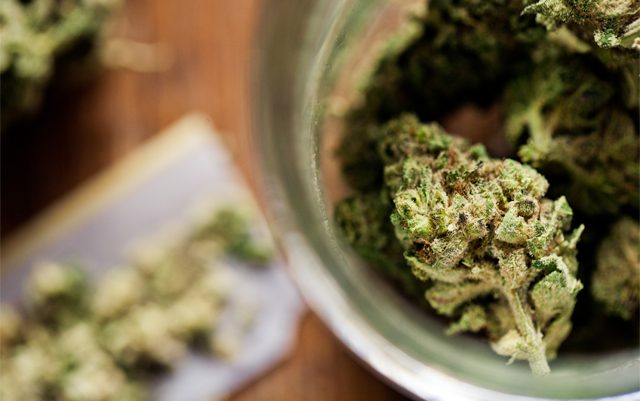A police chief in Massachusetts – who is also a member of the state’s Cannabis Advisory Board – has said that legalization has created an illicit gray market in his state, where illegal dealers are thriving.
“If you look back at when the proponents proposed that we legalize marijuana in Massachusetts, one of the big things they stood by was that it was going to, and I quote, ‘Rid Massachusetts of the illicit market,’ ” Walpole Police Chief John Carmichael told The Boston Herald. “There’s nothing further from truth. It won’t rid us of the illicit market. It will make it much worse.” He said that legalization has provided cover for an illegal market to continue.
Let me begin my analysis of this by pointing out that Chief Carmichael is essentially right when it comes to his basic point, although he blames ‘too much legalization’ when the problem is actually ‘not enough legalization’.
Legalization will do very little – other than help illicit dealers – as long as there are no retail sales. Legal growing and possession basically just gives drug dealers a legal avenue to grow and sell to people who are legally allowed to possess what they are selling, like we see in Vermont and Washington D.C. and most states that legalize recreational possession and growing before sales are actually happening (like Massachusetts). Under those scenarios, the only technically illegal aspect of the whole process occurs during the few seconds when product and money change hands, i.e the selling.
The only way legalization can undercut the black market is by ushering in a legal market where quality, variety and price are comparable to the black market. As more people choose the legal market, illegal dealers are squeezed out. If there are no retail sales or if prices in the legal market exceed those in the black market by too much, more people will stay with the illegal dealers they are used to, keeping the black market alive.
Legalization is not what will bring down the black market, economics is. All things being equal, consumers would rather buy a product that is legal because of convenience and because they don’t want to get caught doing something illegal.
The answer to the problem Chief Carmichael is talking about is retail shops opening in Massachusetts. More legal supply will put pressure on prices to fall, bringing more consumers into the legal market. The black market will probably never completely disappear, but a thriving legal retail marijuana market will go a long way in reducing it a great deal.







Prohibition and only prohibition has created the black market that persists in Mass and other legal marijuana states.
Federal Prohibition
The federal prohibition increases risk for suppliers, inflating the price of state sanctioned weed to $4,000 per pound retail (in CO) while legal vegetables like tomatoes cost dollars per pound. Black market weed -not tomatoes- persists because criminals can undercut federally inflated prohibition prices even in legal states.
State Prohibitions
State prohibitions create black market imports by incentivizing growers to locate to legal states in order to reduce the artificially imposed risk of Prohibition. The artificial price differential imposed by prohibition between prohibition and legal states also creates and incentivizes the black market export: buy low, sell high.
Prohibitive Taxes
The greater the tax the more incentive for a black market to illegally undercut the artificially inflated taxed price. The 400% tax on cigarettes in New York City has created a black market of sorts. (However, unlike unregulated black markets, exclusively tax evasive markets such as NYC cigarettes trade legal, regulated products; Winston, Camel, etc.)
Simply put, prohibitions artificially obstruct markets, fail to supply demand, and thereby create, subsidize and incentivize black markets. End exorbitant taxation and the prohibitions of the states and fed, and black markets vanish.
Realistically, the fed will only relinquish its multi billion dollar law enforcement Prohibition bonanza when forced to by legal states that will make the Prohibition patchwork of laws, denial of tax revenue and denial of banking profits untenable. Only then will the black market be incapacitated. The disingenuous claim that state legalization won’t end the black market is a Prohibitionist ploy to prevent states from doing just that.
Decriminalization and legalization are only more problems waiting to happen. They are worse than half-measures because in their failure, they condemn the effort in so many people’s eyes. Common sense shows that the full repeal of cannabis prohibition for adults is the only viable solution. Why would anyone who can buy a cleaner, purer, cheaper, and known substance legally without dealing with criminals ever want to do otherwise? If the government overregulates and overtaxes the black and gray markets and associates organized crimes will continue to thrive. This goes for all prohibited drugs, not just cannabis.